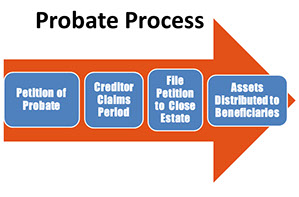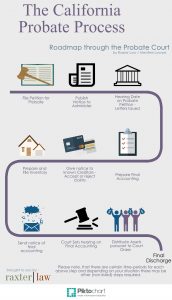The Probate Office do hold other documentation in addition to the Grant of Probate and the copy of Cred’s Will. In particular, they hold the original Probate Application form which my father completed and the original Sworn Oath which he made. Copies of these documents are not available to the general public but at my request, the Probate Office recalled Cred’s file from storage in order to check the details on them.
The Probate Office has therefore been able to confirm that:
i. The gross figure of £210,000 shown on the Grant represents the threshold set at that time by the Inland Revenue at which the Probate Office were required to send them details of a deceased’s estate. This was set lower than the Inheritance Tax threshold at the time (£250,000 w.e.f. April 2002) to enable the IR to check that estates valued close to the Tax threshold were not slipping through the net.
ii. The Net Value figure of £194,000 shown on the Grant of Probate is the same as that shown on the Sworn Oath and is therefore a true representation of the net value of Cred’s estate which my father declared and swore on Oath to be a true valuation, i.e. was the true value of Cred’s estate after funeral expenses and any outstanding debts (council tax. utility bills, etc) had been settled. There is no logical reason why my father would have overstated the value of Cred’s estate; it is more likely that he understated it since he did say to me at the time that he needed “to be careful that it didn’t go over the Tax threshold”.
iii. Both the gross and net figures were taken from the IHT205 form which my father filled in and which accompanied his application for the Grant. The figures on the Grant and the Oath were printed directly from one computer system at the Probate Registry and therefore tally.
So, with a Net Value of £194,000, then Martin and myself were, and still are, entitled to receive £97,000 each.
3. I am aware that Cred’s house was sold for £67.5k. In addition, I am aware of the existence of a number of other assets. For example, what happened to over £16,000 in Premium Bonds which were found in a shoebox in the loft of Cred’s bungalow approx two years ago and were posted on to my father at the Evergreen address? Also, what happened to the shares and bonds for which dividends were still being sent to her address up until a few months before my father’s death? Furthermore, I do not believe that Cred did not have a bank account, or indeed more than one, since she was always moving her money around to get the best rates of interest.
I feel that your attempts to ‘trace’ Cred’s assets have not been particularly thorough. My solicitor’s comments in relation to this are: “…if she is an executor she is under a duty to collect and gather in Cred’s (and Brian’s) real and personal estate and administer it according to the law. She must make all reasonable enquiries to ascertain the extent of the estate. Presumably the problem is now that there are no papers, although I would expect there to be something with Brian’s papers regarding his mother’s estate. It is difficult to know quite what searches Ally would have been able to make on the internet for missing assets unless she is talking about a UAR search. However, I understand from LS that she has never had a result back on a UAR search, so it seems thay are perhaps not particularly wide ranging.
I do not consider that Ally’s comments about the searches she has carried out are a satisfactory account of the steps she has taken to identify and gather in Cred’s assets. I think that we should request a schedule of the assets she has located so that you can check what is included.”
So, please would you send me a schedule of the assets you have located together with details of the searches and enquiries you have made to date.
4. I am of the belief that my father liquidated Cred’s assets and then proceeded to ‘merge’ them with his own, probably deliberately destroying any related records. That does not mean that his estate is only liable for the assets which you have been able to trace. My understanding is that his estate is still liable for the £194,000 (plus interest, etc. since 2002), Therefore, Brian’s estate cannot be settled or distributed until Cred’s estate is satisfied and distributed.
For your information, I am aware that my father held ‘Evergreen’ as a ‘tenant in common’ with Brenda and that therefore half of the value of the house forms part of his personal assets and as such, a current valuation would need to be obtained for Probate purposes. However, I fully expect my father to have accrued other significant assets in addition to the house and therefore am of the opinion that the value of his estate would more than meet £194,000.
I’m sure your solicitor will have advised you of the part of the Estates and Trustees Act which relates to this aspect of things, but for your information I have copied it here:
Administration of Estates Act 1925
Part IIE+W Executors and Administrators
General ProvisionsE+W
“29 Liability of estate of personal representative.E+W
Where a person as personal representative of a deceased person (including an executor in his own wrong) wastes or converts to his own use any part of the real or personal estate of the deceased, and dies, his personal representative shall to the extent of the available assets of the defaulter be liable and chargeable in respect of such waste or conversion in the same manner as the defaulter would have been if living.”
5. I have reason to believe that one or more of my children may be named as beneficiaries in my father’s Will. Therefore, my solicitors have advised me to formally request a copy Brian’s Will from you.
In connection with this, they have informed me that: “there are various duties which trustees owe to the beneficiaries of an estate. They must act loyally, honestly and in good faith and must not let their personal interests conflict with those of the beneficiaries. There are many general duties that a trustee must fulfil, which include a duty to provide information – trustees must produce information and documents relating to the trust when requested by the beneficiaries. LS dealt with a breach of trust situation and argued successfully that her client (mother of the beneficiary) was entitled to information regarding the trust on behalf of the minor beneficiary (her daughter). Therefore, Spencer should be entitled to information regarding the trust on behalf of his minor children.”
Furthermore, my solicitors added: “Usually the executors would be recommended to provide a copy of the Will because there is little to be gained from keeping it a secret – the executors are under a duty to carry out the terms of the Will regardless. I would recommend now asking for a copy of Brian’s Will (if you have not already done so, or asking again if you have already done so). If they refuse to provide a copy we could consider making an application to the court for pre-action disclosure of the Will.”
None of the requests I have made above should involve you in any legal costs since they simply involve providing me with copies of information and documents you already have. Once I am in receipt of all of the requested information, I hope we will be able to progress matters in such a way that any costs are kept to a minimum for all concerned.



